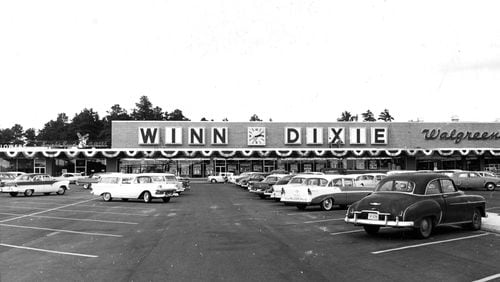The supermarket chain that operates Winn-Dixie and Bi-Lo stores could close as many as 200 stores as part of a possible bankruptcy plan, according to news first reported by Bloomberg.
Reuters reported that sources familiar with the potential bankruptcy filing said the company would close at least 100 stores.
Winn-Dixie operates close to 500 stores throughout Georgia and four other states in the Southeast, including Alabama, Florida, Louisiana and Mississippi.
Founded in 1925, Winn-Dixie was once a major player in the Atlanta grocery market and across the South. As late as the mid-1990s the company was the No. 2 chain in the Atlanta market, behind Kroger. But competition from Publix that expanded aggressively as well as Walmart’s push into the grocery business eroded that position.
In 2005, the company pulled out of the Atlanta market as part of bankruptcy plan that saw it close 62 locations across Georgia. Its closest Georgia locations today are Columbus where it still operates a few stores.
Bi-Lo has a number of stores in Georgia, but none in metro Atlanta. Most are located in east Georgia and along the coastal communities in and around Savannah. Most of its stores are in South Carolina with some also operating in North Carolina.
The Jacksonville-based company Bi-Lo LLC, which owns the chains, has been strained as big-box retailers and Amazon have moved into the grocery business, Bloomberg reported. Older chains are having to revamp their stores or consolidate to keep up.
Bloomberg’s report, based on sources knowledgeable of the plan, said Bi-Lo may try to restructure its business as it did during bankruptcies filed in 2005 and 2009. The company is carrying more than a $1 billion in debt following a buyout 13 years ago by Lone Star Funds.
About the Author







